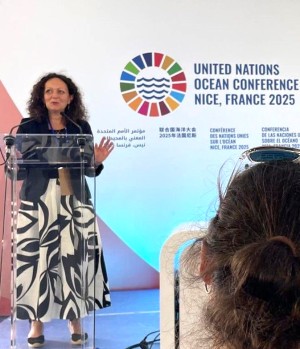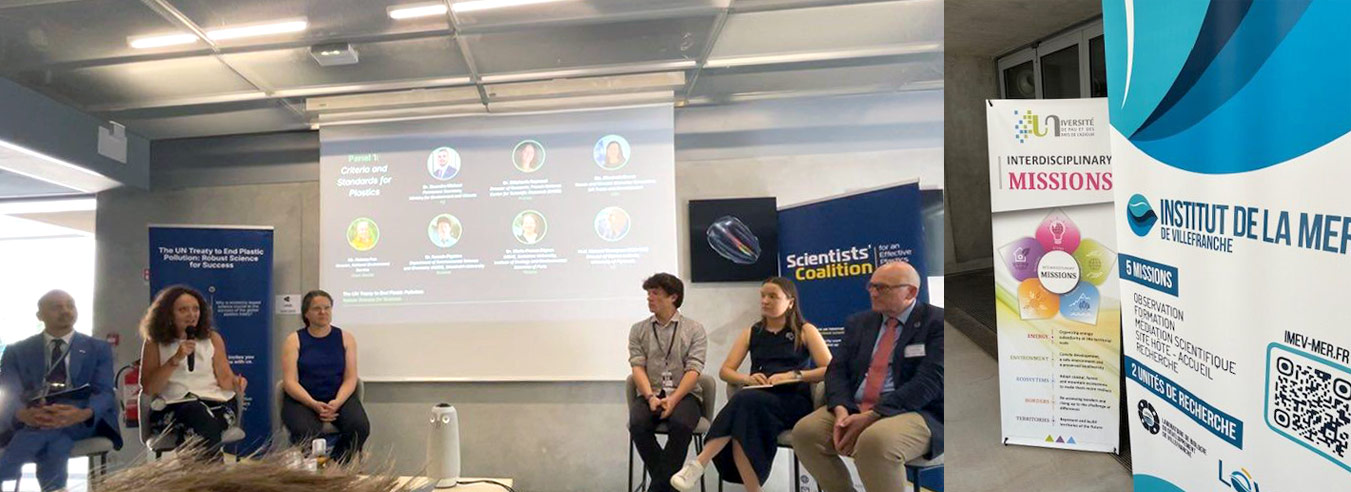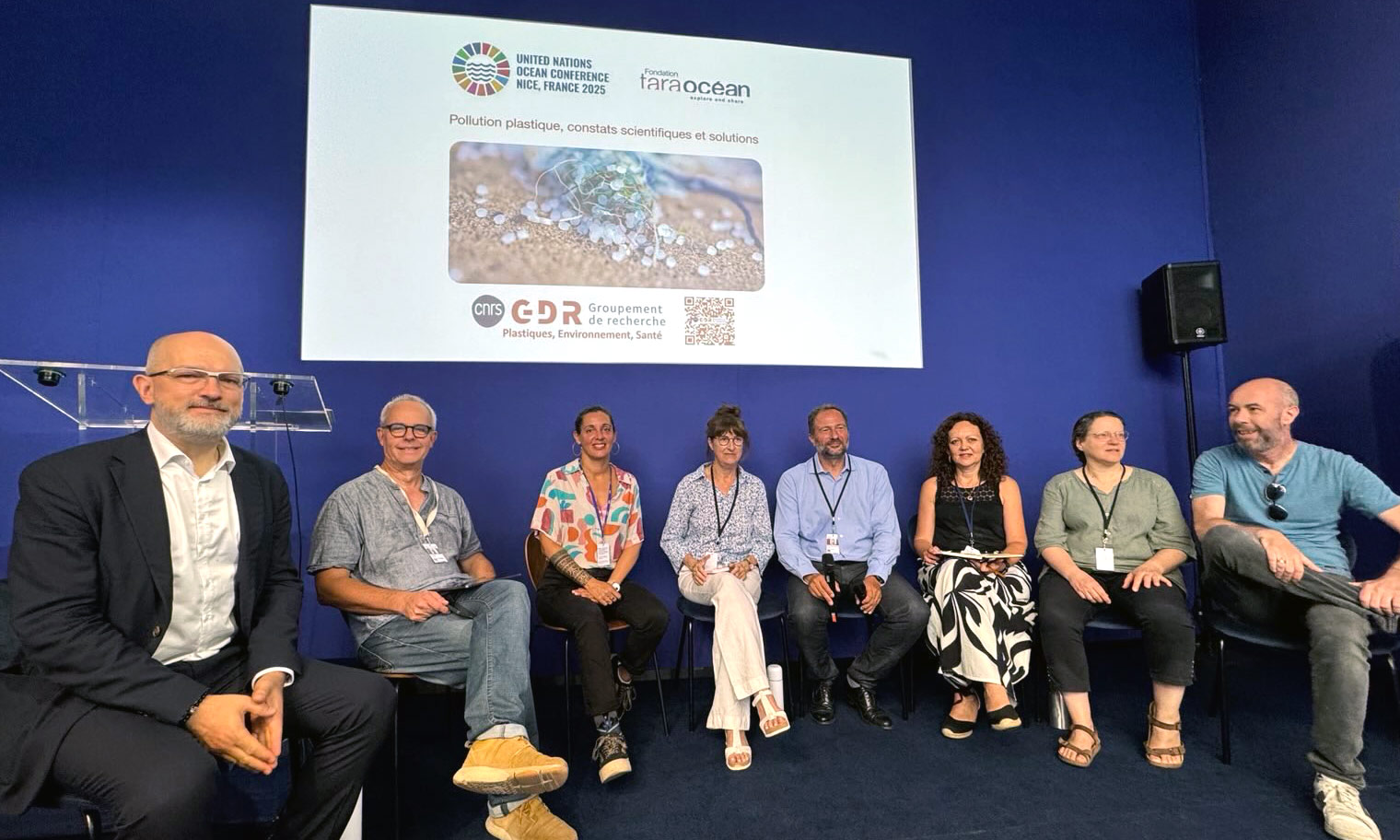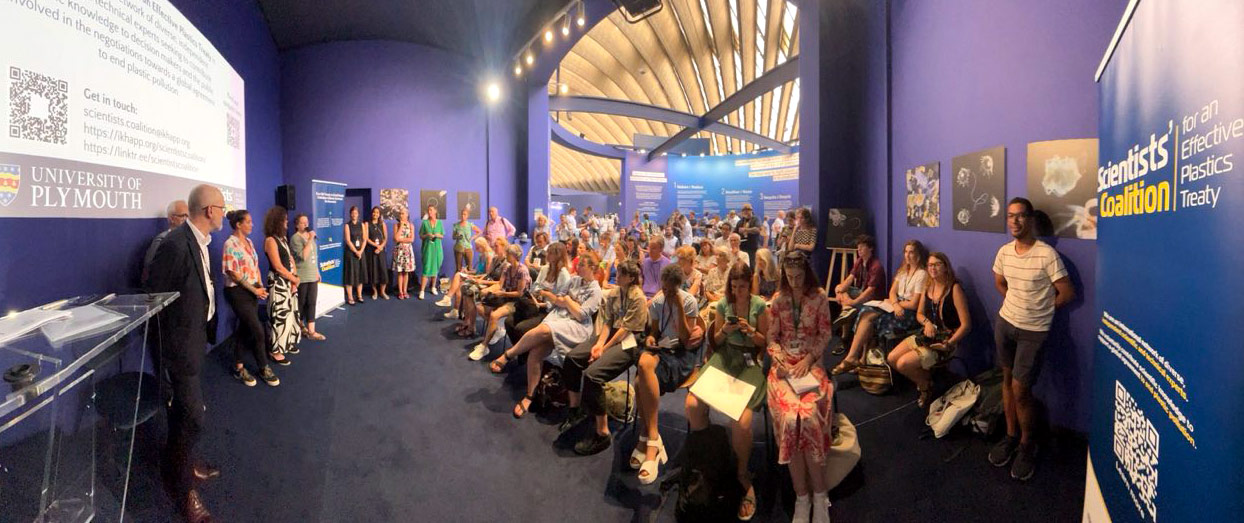The University of Pau at the Third United Nations Ocean Conference

The Conference was preceded by three official special events, including the One Ocean Science Congress, a scientific congress held from June 3 to 6, attended by Stéphanie Reynaud, CNRS Research Director at UPPA (IPREM laboratory) and a nanoplastics specialist.
Ten years after COP21 and the Paris Climate Agreement, the Third United Nations Ocean Conference (UNOC3) aims to bring together the 193 UN member states, their heads of state and government, specialized agencies, civil society, the private sector and international donors, and do for the ocean what was done in 2015 for the climate.
In addition to the official plenary session, dialogue sessions bring together member States, international organizations and representatives of civil society (NGOs, scientists, businesses). These “Ocean Action Panels” aim to highlight the commitment of the various players, and the creation of coalitions and projects in favor of the Ocean, in order to ground the Conference in action by proposing concrete solutions with all its participants.
On June 10, 96 countries sign “The Nice Wake-up Call for an Ambitious Plastics Treaty”.
Round-table discussions
On the sidelines of the conference, the Scientists’ Coalition for an Effective Plastics Treaty, to which Stéphanie Reynaud is also a member, organized a side event at UNOC3 to present its work since 2022. This coalition brings together 350 independent scientists from 60 different countries, who prepare briefing notes for the decision-makers of the International Treaty against Plastic Pollution, either before or during the negotiation sessions.
The round table “International Treaty against Plastic Pollution: a rigorous scientific approach for success” brought together several scientists from the Coalition, experts in the field and political decision-makers, who discussed:
- The role of harmonized criteria and standards, were they guided by independent science, in supporting the reduction of global plastic pollution;
- The need for evidence-based science for the success of the International Treaty against Plastic Pollution, linked to the need to limit the potential for conflicts of interest in scientific bodies, to indigenous knowledge, and to human rights.

Also in conjunction with the UNOC3 conference, Stéphanie Reynaud took part on Thursday, June 12 in two events highlighting the role and place of science in the negotiations.
- On Thursday morning, a round table was organized by the Plastics, Environment, Health CNRS (French National Research Agency) research group, of which she is a member, in conjunction with French foundation Tara Océan. Moderated by Henri Bourgeois-Costa of Tara Océan, the round table's theme was “Plastic pollution: scientific findings and solutions”.
- On Thursday afternoon, along with other members of the Scientists' Coalition for an Effective Plastics Treaty, Stéphanie Reynaud took part in a Q&A session, in English and French, with visitors to the immersive “The Whale” venue set up for UNOC3. Under the theme “What does science tell us is essential for a successfull global plastics treaty?”, the scientists had the opportunity to answer a wide range of questions, including the current context and the issues at stake, the role of scientists in the negotiations for a treaty against plastic pollution, the outlook, etc.
The success of these scientific events throughout the 3rd United Nations Ocean Conference underlines the crucial role played by science in international negotiations.
Stéphanie Reynaud will take part, with the Coalition of Scientists, in the next session of the Intergovernmental Negotiating Committee on Plastic Pollution from August 5 to 14, 2025, at the Palais des Nations in Geneva, Switzerland.

